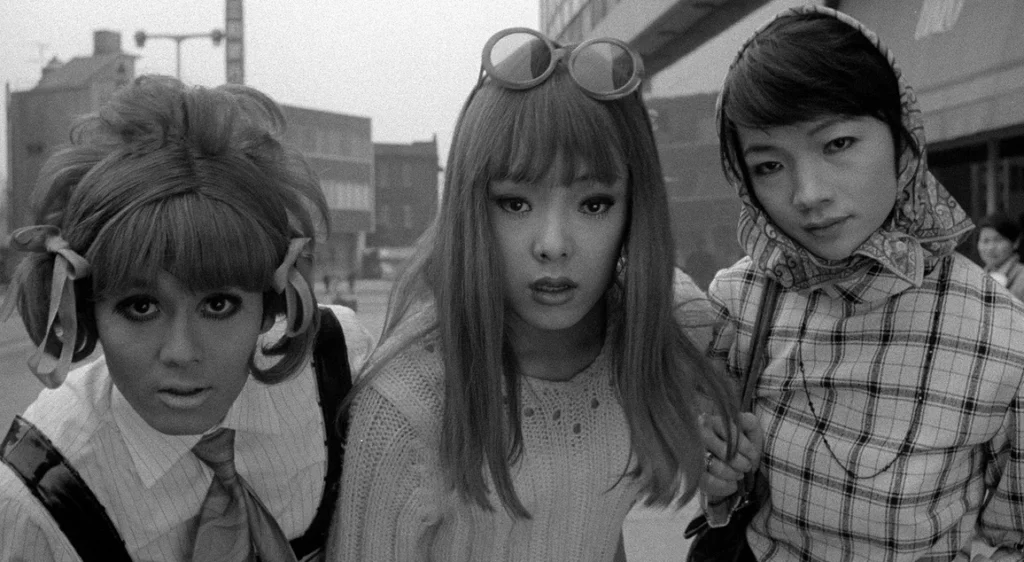Rarely are we blessed with seeing a ‘perverted’ female character on screen, and when we do, it’s normally ridiculously sexualised and very male gazey (cough- Lars Von Trier’s ‘Nymphomaniac’- cough).
I was dubious about watching a film about female desire that was written and directed by a man (though the book it’s based on is written by female author, Elfriede Jelinek). I have to say, I was incredibly pleasantly surprised. As Peter Bradshaw describes it in his Guardian review,
We [audience] were just numbly silent, twitchily uncertain of when to speak. Only one person was in tears. I was reasonably calm but I think I remember leaving the auditorium on my hands and knees.
Michael Haneke’s ‘The Piano Teacher’ (2001) is an anomaly in how astutely it handles its subject matter.

I myself remember being fairly calm too during the duration of the film. It was only during one of the final scenes that I broke down in tears, but even then, I didn’t quite understand why I was touched- in fact, I didn’t quite understand the film itself. I just know what was on the screen in front of me was resonating, and would stay in my mind for a long time.
The Piano Teacher follows Erika (Isabelle Huppert), whom we are introduced to as a strict and reserved piano teacher who keeps high standards for her students and isn’t very friendly. Erika’s behaviour is better understood when we meet her controlling and abusive mother, with whom Erika still lives (and shares the same bed).
We follow Erika’s day to day life, a desperate and secretive one, in which when she’s not teaching piano or in the wrath of her mother, she is escaping to peep shows where she inhales used tissues left behind from strangers, or she is spying on couples having sex in cars, or locking herself in her bathroom to mutilate her genitals.
When she meets a new student, the charming Walter Klemmer, an affair begins. However whilst Walter is keen to have a sexual relationship with Erika, she refuses at first.
She brings him a sheet of paper, detailing her sadomasochistic desires which include being tied up, sat on and beaten, and declares that she will only have the relationship with him if he agrees to fulfil her sheet of desires. Walter is disgusted by this and wants to rebel agains the type of sex they have being dictated by Erika.
As the film progresses from this point, we see the two continually grapple for some feeling of sexual control. Walter eventually is sadistic towards her, but in a way where she is not in control- he breaks into her house, locks her mother in the bedroom and forces himself on Erika after she repeatedly tells him no.
The next time they see each other is the final scene, at a piano recital, where Walter greets her as if he barely knows her. Left alone, Erika takes a knife she had brought with her, and stabs herself in the shoulder. She leaves the recital without performing.
A Deep Dive Into A Masochistic Character’s Psyche

Questions Asked But Not Answered
One of my favourite things about The Piano Teacher is that it takes female masochism seriously and understands it as something incredibly complex. All my fellow BDSMers out there will understand that sometimes our cravings to hurt or to be hurt are beyond our own understanding.
And Haneke doesn’t try to tell us why Erika is the way she is. Many questions are asked, but not necessarily answered. It could be as a result of her controlling mother, it could be as a result of her absent father, or something else entirely; we don’t know the full story and we’re not supposed to.
Something makes me feel that even Erika isn’t quite sure why she desires what she does. I think this is so much more powerful and realistic than a film that believe it must provide a definite reason and full backstory for someone’s perversions.
Conflicting Desires
I believe masochism to be something so complex because you desire for your desires to be ignored. Erika wants to be tied up in the house and left there whilst Walter is out. You want what you don’t want. The entire thing can become such a contradiction. It’s like a love/hate relationship with yourself and your desire.
For women, we grow up in a world where our desires are shaped by male desires, and we’re taught that any desires we have are something to be ashamed of. So it’s easy for women to develop a love/hate relationship with their sexuality.
Control
Masochism can be just as much about taking control as it is about losing control. For many, it’s a way to take control of pain being inflicted on you. You’re choosing it, before anyone else can. For Erika she usually likes to be in control in her everyday life. This appears to be a reaction to her life with her mother, where she has little control and is still treated like a child.
Whilst she craves to be beaten and hurt by Walter, she is still assertive in how she demands this. She refuses to have a sexual relationship unless he agrees to her desires. In her perversions, she has some power, as to be so overtly sexual is a trait normally associated with masculinity.
This is where Walter struggles. Haneke depicts a character who feels emasculated by being faced with a woman who is more perverse than himself. He is used to being an initiator and used to being the one with unashamed desire.
He is disgusted by the idea of her masochism but pushes himself to do it, but only on his own terms, which is what leads to him taking advantage of Erika’s confused feelings of masochism and raping her at the end of the film.
The final scene suggests some regain of control for Erika. When she chooses to leave the recital, she chooses to break her reliance on Walter as a pain inflictor and hurts herself instead by stabbing her shoulder.
The real masochism is letting somebody truly emotionally dominate you, which Walter was starting to do, just like her mother. Erika refuses to let this happen, taking control over her own pain again.
The Piano Teacher is undeniably a difficult watch, however this story is crucial for anyone who has ever had masochistic desires or simply felt confusion and shame towards their sexuality. It’s painful, beautiful and unbelievably nuanced. Watch it.






